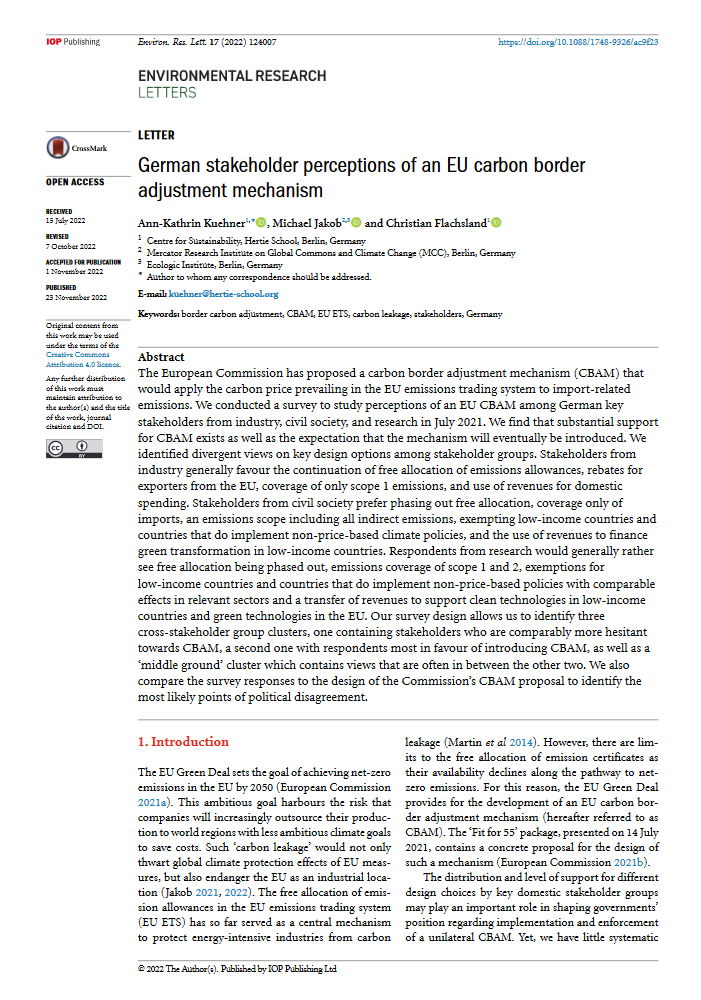German Stakeholder Perceptions of an EU Carbon Border Adjustment Mechanism
- Publication
- Citation
Ann-Kathrin Kuehner et al 2022 Environ. Res. Lett. 17 124007
The European Commission has proposed a carbon border adjustment mechanism (CBAM) that would apply the carbon price prevailing in the EU emissions trading system to import-related emissions. In July 2021, the authors, including Dr. Michael Jakob of Ecologic Institute, conducted a survey to study perceptions of an EU CBAM among German key stakeholders from industry, civil society, and research. They find that substantial support for CBAM exists, as well as the expectation that the mechanism will eventually be introduced. Divergent views on key design options were found among stakeholder groups.
Stakeholders from industry generally favour the continuation of free allocation of emissions allowances, rebates for exporters from the EU, coverage of only scope 1 emissions, and use of revenues for domestic spending. Stakeholders from civil society prefer phasing out free allocation, coverage only of imports, an emissions scope including all indirect emissions, exempting low-income countries and countries that do implement non-price-based climate policies, and the use of revenues to finance green transformation in low-income countries. Respondents from research would generally rather see free allocation being phased out, emissions coverage of scope 1 and 2, exemptions for low-income countries and countries that do implement non-price-based policies with comparable effects in relevant sectors and a transfer of revenues to support clean technologies in low-income countries and green technologies in the EU. Our survey design allows us to identify three cross-stakeholder group clusters, one containing stakeholders who are comparably more hesitant towards CBAM, a second one with respondents most in favour of introducing CBAM, as well as a 'middle ground' cluster which contains views that are often in between the other two. The authors also compare the survey responses to the design of the Commission's CBAM proposal to identify the most likely points of political disagreement.



